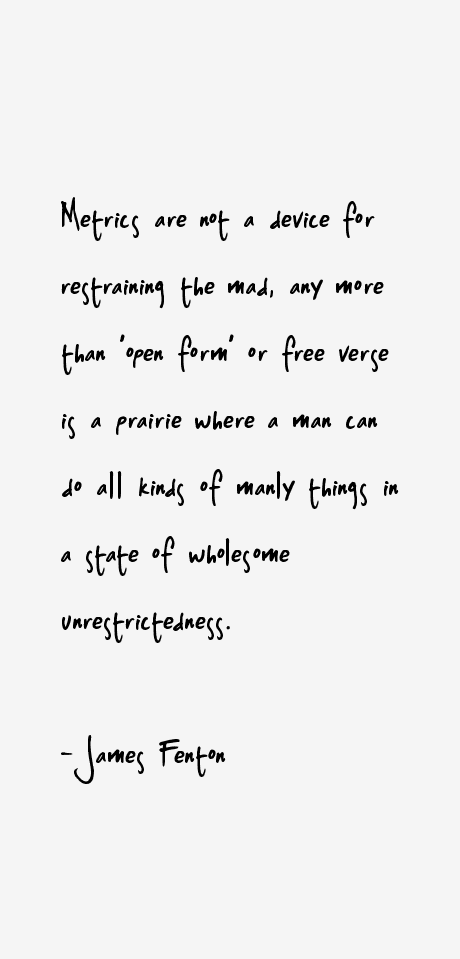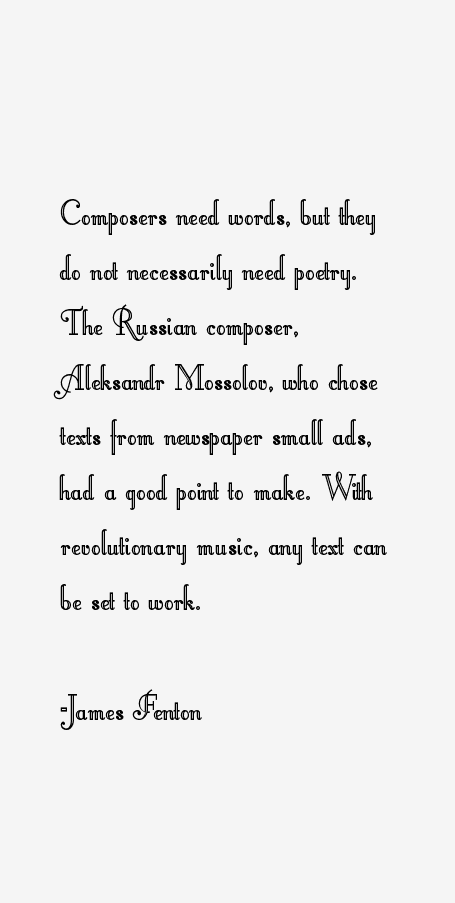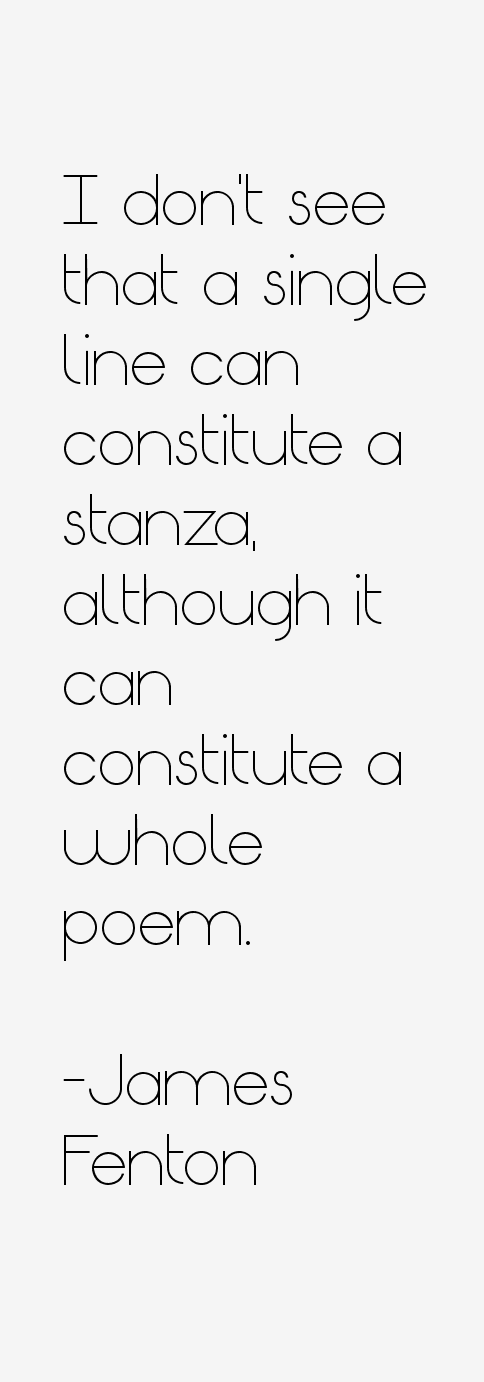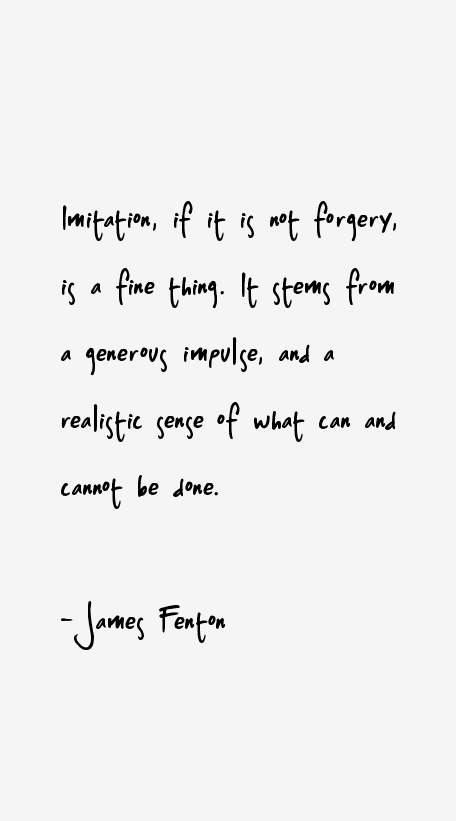James Fenton Quotes & Sayings (Page 2)
James Fenton quotes and sayings page 2 (poet). Here's quote # 11 through 20 out of the 55 we have.
“I've not been a prolific poet, and it always seemed to me to be a bad idea to feel that you had to produce in order to get... credits. Production of a collection of poems every three years or every five years, or whatever, looks good, on paper. But it might not be good; it might be writing on a kind of automatic pilot.”

“Metrics are not a device for restraining the mad, any more than 'open form' or free verse is a prairie where a man can do all kinds of manly things in a state of wholesome unrestrictedness.”
“When we study Shakespeare on the page, for academic purposes, we may require all kinds of help. Generally, we read him in modern spelling and with modern punctuation, and with notes. But any poetry that is performed - from song lyric to tragic speech - must make its point, as it were, without reference back.”
“For poets today or in any age, the choice is not between freedom on the one hand and abstruse French forms on the other. The choice is between the nullity and vanity of our first efforts, and the developing of a sense of idiom, form, structure, metre, rhythm, line - all the fundamental characteristics of this verbal art.”
“The basic rhymes in English are masculine, which is to say that the last syllable of the line is stressed: 'lane' rhymes with 'pain,' but it also rhymes with 'urbane' since the last syllable of 'urbane' is stressed. 'Lane' does not rhyme with 'methane.'”

“Composers need words, but they do not necessarily need poetry. The Russian composer, Aleksandr Mossolov, who chose texts from newspaper small ads, had a good point to make. With revolutionary music, any text can be set to work.”

“The Mormon mission to Africa, as to other dark-skinned parts of the world, was for a long time hobbled by the racism of the movement's scripture.”

“I don't see that a single line can constitute a stanza, although it can constitute a whole poem.”

“Imitation, if it is not forgery, is a fine thing. It stems from a generous impulse, and a realistic sense of what can and cannot be done.”
“An aria in an opera - Handel's 'Ombra mai fu,' for example - gets along with an incredibly small number of words and ideas and a large amount of variation and repetition. That's the beauty of it. It's not taxing to the listener's intelligence because if you haven't heard it the first time round, it'll come around again.”
James Fenton Quotes Rating
No Ratings Yet
Leave A Comment
























